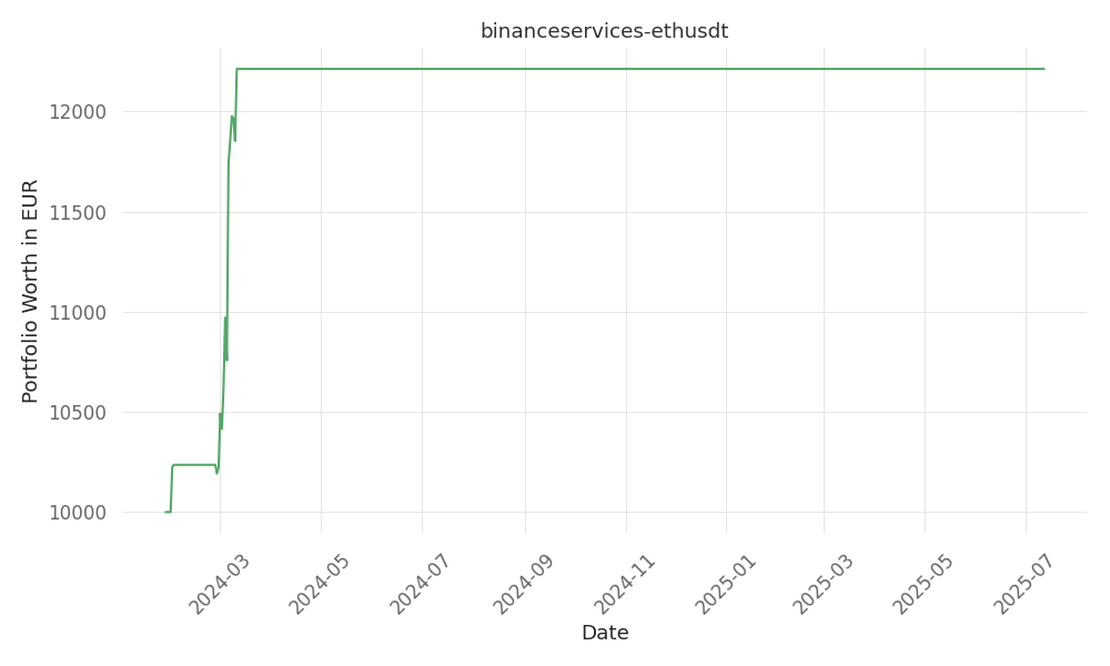
bt_headshoulder_sharpeopt_mixed
Introduction to our strategy no description yet Quick Summary Metric Value Return % p.a. -46 Days active 529 …

tickers: SSTK
source: Benzinga
| ticker | polarity | why? |
|---|---|---|
| SSTK | positively | Shutterstock, Inc. (SSTK) stands to benefit from the evolving cannabis landscape as more states establish or expand their medical marijuana programs. With its extensive library of visual content, SSTK is well-positioned to cater to the marketing and educational needs of the cannabis industry, including dispensaries and caregivers, as they navigate the intricacies of product safety and consumer trust. |
None so far…
Maine’s medical marijuana program operates under less stringent regulations compared to the adult-use cannabis program, notably in the area of product testing. While adult-use cannabis is subject to mandatory testing for potency and contaminants, medical marijuana is not required to undergo any lab testing, leading to potential health risks for patients.
The state’s medical marijuana program stands out for its lack of testing requirements, which is uncommon among other states’ medical programs. John Hudak, director of Maine’s Office of Cannabis Policy, highlighted this discrepancy, noting that testing is a standard practice in most other states.
To illustrate the potential risks, the Office of Cannabis Policy conducted a study in 2022, testing about 120 medical marijuana products. The results were concerning, with 42% of the samples containing contaminants, such as pesticides, heavy metals, yeast, and mold, that would have disqualified them from the adult-use market. While potency testing was not part of the study, the office did test some products on a case-by-case basis due to consumer concerns. In one instance, an edible product was found to contain 120mg of THC instead of the expected 10mg, highlighting the potential for harmful consequences.
Hudak advocates for a significant overhaul of the medical marijuana program, starting with the implementation of testing requirements. Public health advocates and some state officials support this alignment with the adult-use program’s standards. However, the industry has pushed back, citing the cost of testing as a concern.
In response to the opposition, Hudak points out that the price of recreational cannabis has not increased despite mandatory testing requirements. He emphasizes that producing uncontaminated medicine for patients should be a priority. Catherine Lewis, a representative of the Medical Marijuana Caregivers of Maine, agrees but raises the issue of inconsistent lab results, underscoring the need for clear standards set by the state.
While Lewis acknowledges the importance of testing, she also emphasizes the unique challenges faced by the medical marijuana program, suggesting that identical testing requirements as the recreational program could overwhelm smaller operations. She calls for a middle ground, arguing that stringent adult-use standards would crumble the medical industry and reduce patient access to medicine.
Keri-Jon Wilson, a medical marijuana edible producer, voluntarily tests her products for safety and consistency, despite the lack of legal requirement. She finds the limited oversight alarming and echoes the sentiment that industry peers in other states are surprised by Maine’s lack of testing regulations. Wilson highlights the importance of checks and balances to ensure product safety and maintain consumer trust.
The situation in Maine underscores the ongoing challenges in balancing patient access, industry sustainability, and public health concerns within the evolving cannabis landscape. As more states establish or expand their medical marijuana programs, addressing testing standards and consistency will be crucial to ensuring the safety and efficacy of cannabis-based medicine.

Introduction to our strategy no description yet Quick Summary Metric Value Return % p.a. -46 Days active 529 …

Introduction to our strategy no description yet Quick Summary Metric Value Return % p.a. 15 Days active 531 …

Introduction to our strategy no description yet Quick Summary Metric Value Return % p.a. -66 Days active 548 …